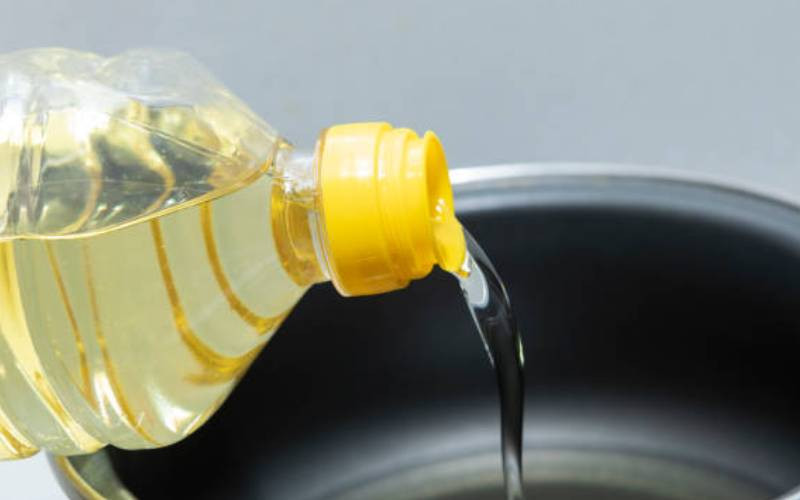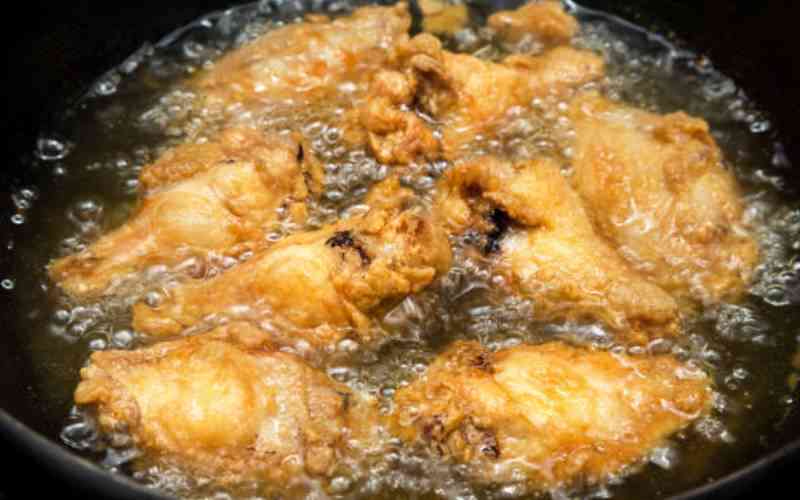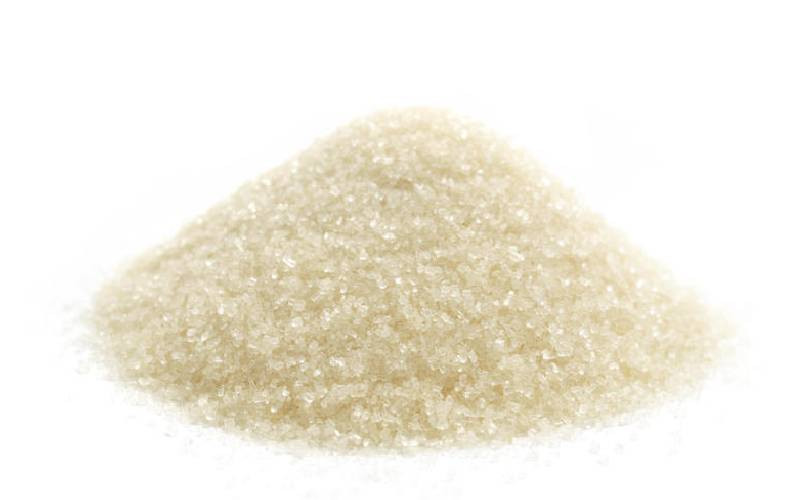
The Kenya Bureau of Standard (KEBS) has suspended the sale of 10 cooking fat brands for non-compliance with set standards.
In a Statement, KEBS said it ordered the recall to protect consumers from potentially unsafe products and to safeguard the economic interests of compliant brands.
"This is not a ban on the brands but a temporary suspension to facilitate the protection of consumers from potentially unsafe products, safeguard the economic interest of manufacturers of compliant brands and allow the manufacturers of non-compliant brands to initiate and put in place effective corrective action under Kebs supervision," read the statement in part.
The suspension comes at a time when Kenyans are decrying the rising cost of cooking oil due to the vagaries of inflation, which has escalated domestic budgets in the face of stagnant salaries and income sources.
The ongoing Russian-Ukraine crisis disrupted global supply chains, including oil, whose rising costs saw a rise in the cost of production.
Also affected was cooking oil whose cost was worsened by global prices of crude palm oil, which is essential in the manufacture of cooling oil. Although prices of palm oil have been dropping down, they are still high compared to a year ago.
That the Kenya shilling has continued losing to the US dollar has only made matters worse.
But do people really need cooking oil? Well, for starters an array of food types do not require cooking oil or cooking fat.
In fact, Prof Christopher Ataro, a plant bleeding scientist, says there are no foods that can't do without cooking oil. There are different ways of cooking such as boiling, grilling and roasting, he adds.
Some foods though have natural fats while others have more health benefits due to their low-fat levels. We are here talking about meats like beef, chevon (goat meat), veal, mutton, chicken, pork and fish. Most produce a lot of natural oil when cooked under low fire over time.
Adding cooking oil to such meats only increase their fat/oil content of which too much is dangerous to the body. Bad cholesterol, high blood pressure, increased risk of heart disease, diabetes, certain cancers and obesity are some of the consequences, warns former hotel nutritionist Grace Chege.
She adds that adding cooking oil to meats can also reduce one's appetite. Chege says that all forms of meat, red or white have their own natural oil and need no processed cooking oil or fat to cook them.

Vegetables cooked under steam, she says, shorten the duration thus making them retain their natural properties and value, especially vitamins.
"If you cook vegetables for a long time they lose vitamins which are the main benefits of eating vegetables", says Chege.
"Vegetables must not change colours as they're healthier, appealing and flavoured when they look green. Overcooking turns them from green to brown," she says.
The body needs vitamins, calcium, potassium and folate to prevent diseases.
Some Kenyans reckon that chips cannot do without deep frying which requires a lot of oil. But chips can be air-fried. And if anything air-fried chips are better than deep-fried ones?
Prof Ataro says: "Yes, as already mentioned, deep frying breaks the oil and reduces its quality, making it rather unhealthy. Air drying is like grilling without oil."
Chege advises that people go for low-fat foods as restricting fat intake is beneficial, especially for people with gallbladder or pancreas disease.
Prof Ataro explains that high intake of cooking oil increases high concentration of toxic chemicals called aldehydes thus increasing the risk of diseases like arthritis, heart disease, dementia, gallbladder and pancreas disease while low intake of cooking fats decreases the or controls the risk of the same diseases.
Low-fat diets also prevent heartburn, cut weight and improve cholesterol levels.
Chege says all grains should be cooked, and remain healthy, when prepared without cooking oil like the mixture of maize and beans popularly known as githeri and which is a staple diet of communities in Central region. Muthokoi, common among the Kamba, also falls in this category.
Other foods which should be made without cooking oil include legumes like peas, lentils, mushrooms, vegetables and pumpkins.
Starchy foods like cassava, potatoes, ngwaci (sweet potatoes), nduma (arrow roots) and yams are best boiled. Eggs can be boiled or pouched.

Other foods that don't require cooking oil include mrenda, managu, ugali, maize (which can be boiled or roasted), beans, mukimo (pounded mixture of maize, bean, potatoes and nduma leaves), rice, cassava and spaghetti.
As for those who buy animal fat from butcheries, well, Prof Ataro advises against it.
"Animal fats are mostly either saturated fat or trans fats, which are potentially harmful to your health," he explains.
Unlike other dietary fats, trans fats are the worst. Also called trans-fatty acids, trans fats raise 'bad' cholesterol and lowers 'good' cholesterol.
"The better option is vegetable oil. Processed vegetable oils fall in the category of polyunsaturated oils (found in vegetables, nuts and seed) and are good for your health," says Prof Ataro.
"We spoil them by subjecting them to heat during deep frying. Their smoke points or boiling points are mostly low and their structure breaks under high heat
"Groundnut oil has a high smoke point and does not break as easily, but the oil is not abundant and is costly," adds Prof Ataro.
But boiled foods can be tasteless to the palate. How can they be made more palatable?
Prof Ataro advises that one can add spices such as coriander, black pepper, celery and mint or unprocessed oily foods like crushed groundnut or coconut.
 The Standard Group Plc is a multi-media organization with investments in media platforms spanning newspaper print
operations, television, radio broadcasting, digital and online services. The Standard Group is recognized as a
leading multi-media house in Kenya with a key influence in matters of national and international interest.
The Standard Group Plc is a multi-media organization with investments in media platforms spanning newspaper print
operations, television, radio broadcasting, digital and online services. The Standard Group is recognized as a
leading multi-media house in Kenya with a key influence in matters of national and international interest.











